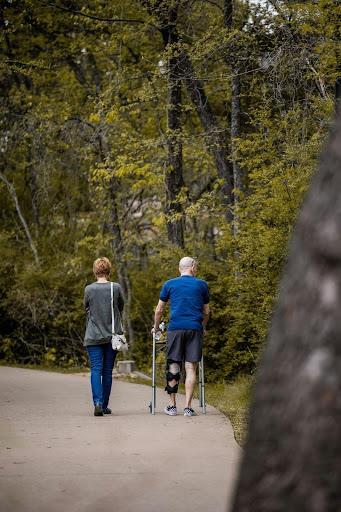A personal injury affecting someone you love can profoundly disrupt their entire life. The combination of physical pain, emotional distress, and financial concerns creates a perfect storm that can feel overwhelming. In such times, meaningful support is crucial, yet it’s often unclear how best to help. While there’s no single guide on how to assist during this challenging period, a few thoughtful and deliberate actions can make a significant difference.
Here are five key steps to effectively support your loved one through the journey of recovery after a personal injury.
Be Present Without Overwhelming Them
Simply being present can provide immense comfort to your loved one. The person you care for may not always know when to ask for support or may struggle to articulate their needs. Your presence should convey your support without the need for constant questioning. Sit with them and listen when they feel ready to share their thoughts. Offer a listening ear and allow them to voice their feelings without rushing to provide solutions. Instead, validate their emotions by acknowledging that their feelings matter to you and reassuring them that you will be there throughout their journey.
Help Them Stay Organized
Injury recovery can involve piles of medical bills, doctor appointments, and paperwork. This can feel overwhelming, especially when someone is in pain or exhausted. Offering to help organize these tasks can ease their stress. Create a simple calendar to track appointments. Offer to sort through medical documents and ensure bills are paid on time. If they’re unable to drive, volunteer to take them where they need to go. These small efforts add up, showing them they’re not alone in dealing with these challenges.
Provide Practical Help
Everyday tasks can feel impossible when someone is recovering from an injury. They may struggle to cook, clean, or even move around their home. Offering practical assistance can lift a significant weight off their shoulders. Cook a meal for them or bring over groceries. Help tidy up their space or do their laundry. If they have pets, offer to walk the dog or feed their cat. These simple actions not only support their recovery but also show genuine care. However, it’s important to respect their independence. Don’t take over everything unless they’ve asked. Be mindful of their boundaries while ensuring they feel supported.
Assist With Getting Legal Guidance
After a serious injury, navigating legal and financial decisions can feel overwhelming. For example, if they’re considering seeking compensation, they may need guidance on finding the right legal resources. For those in California, reaching out to a California brain injury lawyer, if your loved one suffered a brain injury, for example, could clarify their options and help ensure they receive the support and compensation they deserve to ease financial burdens. However, it’s important not to pressure them into making decisions. Instead, offer helpful information and allow them to take the lead. Empowering them to make their own choices fosters confidence and control during an uncertain time.
Support Their Emotional Healing
Recovering from an injury isn’t just about physical recovery. Emotional healing is just as crucial. Your loved one may feel frustrated, helpless, or even depressed. Acknowledge these feelings without judgment. Encourage healthy coping methods. Remind them that recovery is a process and it’s okay to have difficult days. Try to bring light into their routine—watch a comforting movie together or take them to a peaceful park.
Conclusion
Supporting a loved one after a personal injury requires patience, empathy, and thoughtful actions. It’s not about solving all their problems but rather about being a steady presence as they navigate their recovery. Small gestures of kindness, practical help, and emotional understanding can create a powerful impact. While their journey might be tough, your care can help make it a little easier.




